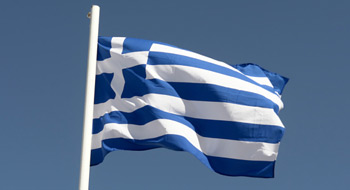
Originally from our sister publication, Advisor.ca.
In the four weeks following the Greek and French elections, global markets were sent on a roller coaster ride. And now, anxiety over the fate of the eurozone has intensified as investors focus on the upcoming election in Greece, which takes place on June 17.
The April elections raised the profile of the eurozone in a very negative way, said Eoin Fahy, chief economist and multi-asset strategist at Kleinwort Benson Investors, during a BMO conference earlier this week.
While Hollande’s victory in France was major, however, it needs to be put into perspective. “Hollande seems to be moving away from austerity and is indeed pushing against the conservatives in the market,” said Fahy. “But, while his strategies may result in a larger deficit over a longer period of time, he’s just making a course correction.”
He added, “He’s simply adding a growth dimension to current plans, rather than a full growth policy. He isn’t ignoring fiscal reduction targets.”
The bigger concern for Fahy is Greece’s current fiscal and political position. If the country were to stage a second faulty election, global sentiment could be hit hard. Worse, he said, “Policymakers could stage a Mexican standoff, refuse to pay debt and test Europe.”
While this would certainly be negative for global markets, Fahy urges investors to remember Greece is only one small part of the eurozone. Even if the country’s officials stood up against the European Union and the IMF, the damage done to the eurozone as a whole would most likely be minimal.
The contagion and panic caused by investor fears would be the real problem—for instance, if depositors in countries such as Germany started hearing Greeks lost money by failing to withdraw it from the bank before their country fell, German citizens might start yanking money out of their own systems out of fear.
Fahy says this kind of panic and widespread fear would be unfounded, and that “We have to give credit to [European] policymakers. They will be ready for a Greek exit if it occurs and are planning for any possible future scenarios.”
If Greece were to exit the eurozone, he expects banks would be flooded with liquidity, rates would be lowered, and a series of measures would be taken to isolate Greece and protects banks across the region.
And Canada wouldn’t be largely affected, says Paul Taylor, chief investment officer at BMO Harris Private Banking and BMO Global Asset Management. He says our trade ties with Europe are moderate and that our Eastern connections are much more important to our economy.
While the dollar would be affected and investors would have to remain cautious in a risk-off environment, related risks are already being priced into the market.
“The TSX and our equity markets have already pulled back and it’s hard to get true forecast based on current events,” he said. “But, this won’t be severe and is nothing compared to the Lehamn crisis, for example.”
He added, “We won’t be retesting the lows of 2008. There’s a high probability of tons of noise [and volatility], but the eurozone should remain relatively intact. There’s the possibility of an orderly exit of one or more countries, but that’s manageable.”
Jack Ablin, chief investment officer at BMO Harris Private Bank in Chicago, says he would welcome Greece’s exit and thinks it shouldn’t have joined the eurozone in the first place. Without Greece, the rest of the zone could then move forward. He also says eurobonds would help bolster the remaining countries while dealing with the shift.
As far as contagion goes, Ablin says Europe has dealt with the crisis well so far, and is confident its banks will be able to insulate against any further dramatic downturns. The problems in the eurozone aren’t new, and banks will have prepared for dire situations.
He also approves of France’s elevation of Hollande. “Austerity measures are not working. You need a balance between growth and austerity, and you can’t just take a strict approach [when dealing with struggling economies],” he said. “You end up pushing too hard in one direction, causing people to throw up arms and give up.”
